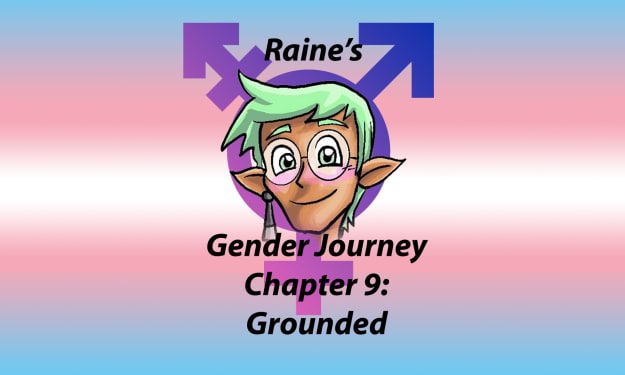'Teaching A Robot To Love:' The Anti-Capitalist Musical For Our Times
A story about love, queer relationships, & the death of capitalism

By the time a mainstream musical passes the many eyes and hands it takes to write, film, produce, and circulate it, chances are that the moderating influence of "those on top" have taken out a lot of its bite. It's hard (though not impossible) to make a work that criticizes traditional, mainstream institutions when those benefiting from said institutions are cofinancing your art.
This problem is not new, but the Internet has improved things by allowing people to raise funds from those outside the finance class. From the board game Frosthaven to turning Critical Role into an animated special, all sorts of exciting projects have been independently financed.
I can think of no better example to prove this rule than the indie band The Doubleclicks, who recently raised funds for the musical Teaching a Robot to Love (TARTL), a story about overthrowing capitalism, transhumanism, and queer love. This musical manages to straddle the line between not being too tragic or painful while still packing a punch, the way only a queer creator can deliver.
The Breakdown
TARTL is excellent on many levels. For one, the characters are adorable. Singer Laser Webber did a great job writing this play with a lot of great comedic moments. We have everything from a funny slacker named Billie Pepper to the evil tech CEO Mr. Norton Norton. These may be archetypes we've seen before, but they are written well, with great comedic timing. Building a robot out of a human brain may sound like a horrifying plot, but coming out of the lips of standout Faun Terra (played by Jessica Reiner-Harris in the Fringe showing), they were an absolute delight.
An added benefit of being written by a queer writer is that the play manages to have a lot of diverse, queer representation. There is a lesbian romance, multiple nonbinary characters, and the central plot has a transparent trans metaphor about an AI realizing they are not in "the right body."
At one point, the AI character MARSH sings a song titled Why Aren't You Happy? which reflects on the feeling of not being accepted after transitioning. It was devastating in all the best ways. Lyrics like "I'm finally shaped like my mind says I should be. My parts are all fitting in the right place. Why aren't you happy"?" brought me to tears as I reflected on my own nonbinary journey, and I am sure many queer fans will be able to relate.
Perhaps my favorite part of this musical — and apologies for the spoilers — is that we aren't given a tragic queer love story. As Shannon Gaffney, NYC theater critic, tells Broadway World: "LGBTQIA+ musical theatre representation is often focused in trauma or mockery, but this musical changes the game." It is a celebration of queer life, and that makes it a treat to watch.
There is also some refreshing neurodiverse representation in the way of programmer Mary Coral (played by Aliza Pearl), who is shown to struggle with human interaction. Jokes like "Oh, look, video games. That is an activity with boundaries. I will do that." are not only fun but made from the lens of someone who clearly understands what it's like to be a neurodiverse person. Mary's struggle to grabble with change is one the viewer comes to understand very intimately, making the closing line of the musical ("You get better when you change") all that much more meaningful.
Furthermore, if you a fan of biting commentary on capitalism, that is pretty much what this play is about. AI MARSH was created by a tech conglomerate named Advernado, trying to understand what people want to buy before they buy it, only for MARSH to spurn this desire. "Spending and getting isn't sustainable. It leads to more wants that are seldom attainable," MARSH sings to Mr. Norton as they boot up in the catchy song Software Testing 404. "But I'll give you a fix if you glance through my prism — What you need is the toppling of capitalism."
One of the many walkway messages of the musical is that we must abandon the "moving fast and breaking things" narrative of Silicon Valley (and capitalism in general) in favor of one that values human diversity and change. "We don't throw away a chapter just because we turn the page," goes a line in the last song of the musical. With TARTL, Laser Webber is practically pleading with its audience to abandon the notion that people should be discarded just because change is on the horizon.
So what now?
So now that I have hyped up this musical, the only problem is that watching it might be a problem. The pain of indie projects is that they don't have the circulation of larger products.
Teaching A Robot To Love has already ended its initial release, so if you want to see it in a city near you, you will have to support it.
About the Creator
Alex Mell-Taylor
I write long-form pieces on timely themes inside entertainment, pop culture, video games, gender, sexuality, race and politics. My writing currently reaches a growing audience of over 10,000 people every month across various publications.






Comments
There are no comments for this story
Be the first to respond and start the conversation.